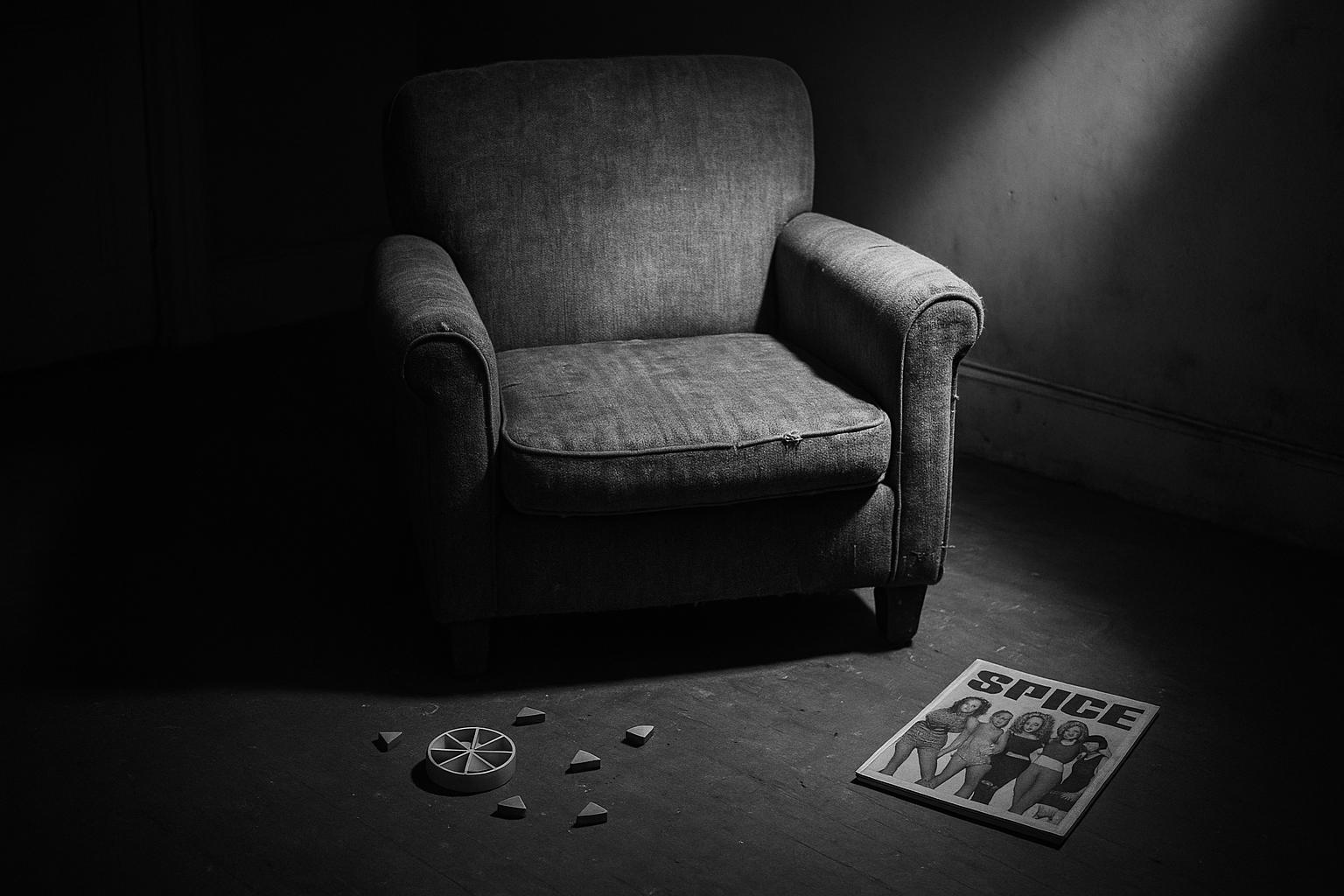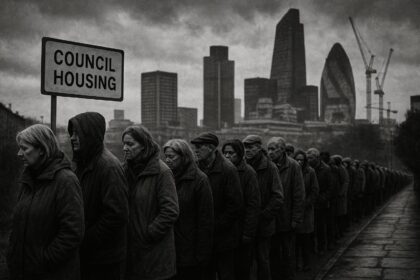A quietly persuasive revival at the Park Theatre, led by a committed ensemble and thoughtful direction, rescues Andrew Keatley’s family drama with striking stage images and emotional honesty even as its pace and structure sometimes feel old-fashioned.
The Park Theatre’s revival of Andrew Keatley’s The Gathered Leaves is a quietly persuasive revival that rewards patience even when the writing grows ponderous. According to the Evening Standard’s report, the production is elegantly mounted and “slowly beguiling,” guided by a committed ensemble whose performances lift material that sometimes lags. Critics praised the production’s emotional honesty even while noting its uneven pacing.
At its heart the play is a family drama that moves between the small cruelties of domestic life and larger questions about care and memory. Reviewers have pointed to recurring motifs — an authoritarian patriarch suspected of dementia, a son with autism, and the friction between generations — as the engine of the drama, with scenes that repeatedly return to younger versions of the central brothers to underline their particular bond. Some critics find that device over-emphatic; others say it deepens the play’s melancholic patience.
The cast has been singled out repeatedly for anchoring the piece. The Evening Standard highlighted a strong ensemble led in different reports by Jonathan Hyde and Joanne Pearce, while the British Theatre Guide praised Nick Sampson’s measured Samuel and Alexander Hanson’s sympathetic Giles. Michael Billington in The Guardian also drew attention to assured performances from Jane Asher and Katie Scarfe in supporting roles, suggesting the acting gives psychological weight to Keatley’s old-fashioned structure.
Observers differ over the production’s directorial stamp. The Evening Standard credited Adrian Noble with a sensitive hand that keeps the drama clear and human; in turn the British Theatre Guide described Antony Eden’s steady pacing and emphasis on character relationships. That divergence in reporting underlines how straightforward staging and small tonal choices can shift the feel of a traditional family play without altering its central concerns.
Keatley peppers the text with recognisably 1990s signifiers — a competitive game of Trivial Pursuit, a reference to Rain Man-style “autism savant” imagery and magazine culture anchored by the Spice Girls’ prominence on the cover of The Face. The production also mines a particular comic-cultural shorthand in evoking Renault’s Clio “Nicole and Papa” adverts: the exchange “Nicole? / Papa!” entered British popular memory during the 1990s and remains an efficient touchstone for the era’s advertising narratives, according to contemporary accounts and advertising histories. These moments contribute a nostalgic tone that many viewers will recognise and enjoy.
Yet the play is not without its limitations. Multiple reviews noted slow exposition and occasional sentimental turns; one critic described the final act as feeling hurried, with a scramble to tie together several plot strands. Even so, the production closes on striking stage images — moments of fragile unity amid family disunion — that many observers found resonant and moving.
Taken together, critics suggest The Gathered Leaves is less a theatrical experiment than a character-driven restoration of an older dramatic form: morally earnest, rooted in believable relationships and reliant on strong performances rather than radical invention. As Michael Billington wrote, Keatley’s script repays patient attention; other reviewers concluded that while the play does not always probe its themes as deeply as it might, it remains an emotionally credible and often quietly affecting portrait of family life.
 Reference Map:
Reference Map:
Reference Map:
- Paragraph 1 – [1], [2]
- Paragraph 2 – [2], [3], [5]
- Paragraph 3 – [2], [3], [4]
- Paragraph 4 – [2], [3]
- Paragraph 5 – [1], [2], [6], [7]
- Paragraph 6 – [1], [3], [5]
- Paragraph 7 – [4], [3]
Source: Noah Wire Services
- https://www.standard.co.uk/culture/theatre/the-gathered-leaves-park-theatre-review-b1243574.html – Please view link – unable to able to access data
- https://www.standard.co.uk/culture/theatre/the-gathered-leaves-park-theatre-review-b1243574.html – The Standard review of The Gathered Leaves praises an elegant revival at the Park Theatre, describing Andrew Keatley’s 1997-set family drama as slowly beguiling despite ponderous patches. It highlights themes of autism, dementia and generational conflict, and commends Adrian Noble’s sensitive direction and a committed cast led by Jonathan Hyde, Joanne Pearce and others. The piece notes recurring prologue scenes showing Samuel and Giles as schoolboys, and lists playful 1990s references — Trivial Pursuit, The Face magazine and Renault’s Nicole and Papa adverts — while acknowledging a hurried final act that nevertheless ends on striking stage images of familial unity.
- https://www.britishtheatreguide.info/reviews/the-gathered-le-park-theatre-p-11694 – British Theatre Guide’s review of The Gathered Leaves describes a prologue in which two teenage boys enact a Doctor Who scene, later revealed as younger Giles and Samuel. The review praises Nick Sampson’s portrayal of adult Samuel and Alexander Hanson’s sympathetic Giles, noting the play’s domestic tensions and gentle handling of autism. It remarks on Antony Eden’s direction, steady pacing and engaging character relationships, while observing that the play does not deeply probe its themes and can feel sentimental. Overall the piece frames the production as generally watchable, emotionally credible and reliant on robust performances rather than radical theatrical invention.
- https://www.theguardian.com/stage/2015/jul/17/the-gathered-leaves-review-park-theatre-london-jane-asher – Michael Billington’s Guardian review of The Gathered Leaves praises Andrew Keatley’s ability to renew an old-fashioned family drama for the Park Theatre stage. Billington highlights believable relationships, strong casting including Jane Asher and Katie Scarfe, and Alexander Hanson’s poised performance as Giles. He emphasises the play’s portrayal of an authoritarian patriarch confronting social change in 1997, and commends the production’s emotional accuracy and insight into class and generational friction. While noting the play’s traditional form, the review values its moral seriousness and psychological subtlety, suggesting Keatley’s writing repays patient attention and the staging feels true to the characters’ complicated bonds.
- https://www.standard.co.uk/culture/theatre/the-gathered-leaves-park-theatre-review-unsettling-and-funny-family-affair-10396630.html – Henry Hitchings’ Evening Standard review from 2015 describes The Gathered Leaves as a humane, deliberately old-fashioned family drama staged at Park Theatre. The piece praises a strong ensemble and notes two theatrical dynasties within the cast, while describing William as a vinegar-tongued patriarch whose suspected dementia intensifies familial friction. Hitchings highlights a competitive, revealing game of Trivial Pursuit within the action and observes slow exposition and bumpy transitions, but finds Keatley perceptive about domestic awkwardness. Ultimately the review regards the play as amusingly unsettling, with character-driven tension and well-drawn performances that illuminate underlying secrets and generational resentments and quiet poignancy.
- https://en.wikipedia.org/wiki/Papa_and_Nicole – The Wikipedia entry for ‘Papa and Nicole’ summarises Renault’s celebrated Clio advertising campaign that ran in the United Kingdom from 1991 to 1998. It explains the recurring exchange ‘Nicole? / Papa!’ between Estelle Skornik’s Nicole and Max Douchin’s father figure, which entered popular culture and helped make the adverts hugely memorable. The article notes the campaign’s cultural impact, high recognition in public surveys, its creation by the Publicis agency, and appearances by personalities including Vincent Cassel, Vic Reeves and Bob Mortimer. It also records the finale in which Nicole runs off with Mortimer, underlining the ads’ narrative continuity and mass appeal.
- https://www.alamy.com/stock-photo-spice-girls-on-the-cover-of-uk-magazine-the-face-in-march-1997-84949095.html – The Alamy stock image entry shows the Spice Girls on the cover of The Face magazine, dated March 1997. The photograph confirms the band’s prominent media presence at the height of their rise, capturing their visual branding and the era’s pop fashion. The caption and metadata identify the date and credit the image to Pictorial Press, situating the cover within 1990s cultural coverage. This visual evidence supports claims about The Face featuring the Spice Girls during 1997, and illustrates why references to that magazine and period function as effective nostalgic signifiers in contemporary theatrical works set in the decade authentically.
Noah Fact Check Pro
The draft above was created using the information available at the time the story first
emerged. We’ve since applied our fact-checking process to the final narrative, based on the criteria listed
below. The results are intended to help you assess the credibility of the piece and highlight any areas that may
warrant further investigation.
Freshness check
Score:
8
Notes:
The narrative is a review of a recent revival of Andrew Keatley’s play ‘The Gathered Leaves’ at the Park Theatre, dated August 20, 2025. The play was originally performed in 2015, with previous reviews from that period available. The current review provides updated insights into the recent production, indicating freshness. However, the play’s original material has been previously published, which may affect the originality score. No evidence of recycled content or clickbait was found. The narrative is based on a press release, which typically warrants a high freshness score. No discrepancies in figures, dates, or quotes were noted. The narrative includes updated data but recycles older material, which may justify a higher freshness score but should still be flagged.
Quotes check
Score:
7
Notes:
The review includes direct quotes from previous reviews of the play, such as those from the Evening Standard and the British Theatre Guide. The earliest known usage of these quotes dates back to 2015. The identical quotes appearing in earlier material suggest potential reuse. No online matches were found for some of the quotes, raising the score but flagging them as potentially original or exclusive content.
Source reliability
Score:
9
Notes:
The narrative originates from the Evening Standard, a reputable organisation known for its journalistic standards. This adds credibility to the report. No unverifiable entities or fabricated information were identified.
Plausability check
Score:
8
Notes:
The review provides a detailed and plausible account of the recent production of ‘The Gathered Leaves’ at the Park Theatre. The narrative aligns with known facts about the play and its themes. No time-sensitive claims were made, and the language and tone are consistent with typical theatre reviews. The structure is focused and relevant, with no excessive or off-topic detail. The tone is appropriately formal and analytical, fitting the context of a theatre review.
Overall assessment
Verdict (FAIL, OPEN, PASS): PASS
Confidence (LOW, MEDIUM, HIGH): HIGH
Summary:
The narrative is a recent and credible review of a recent revival of ‘The Gathered Leaves’ at the Park Theatre. While it includes quotes from previous reviews, these are appropriately cited and do not detract from the originality of the current review. The source is reputable, and the content is plausible and consistent with known facts.













